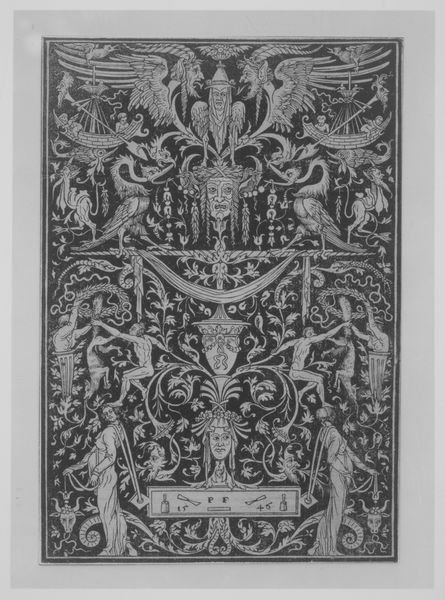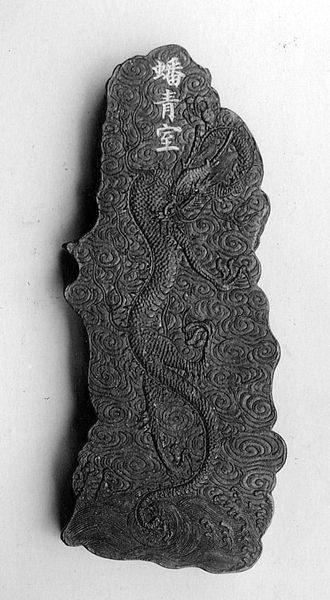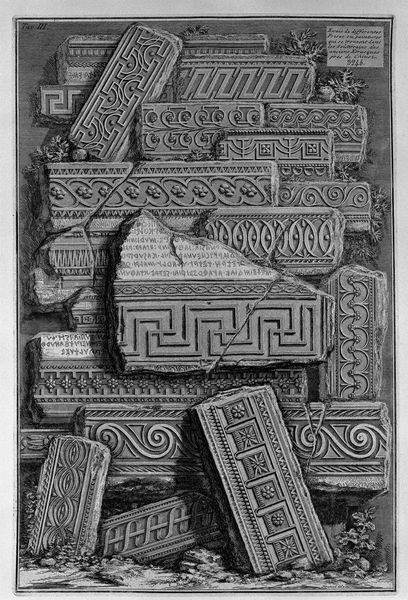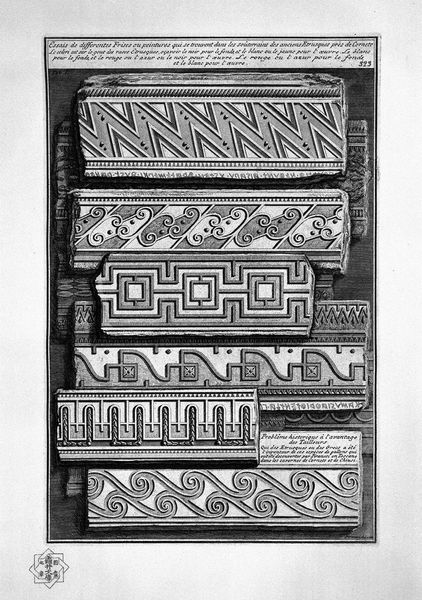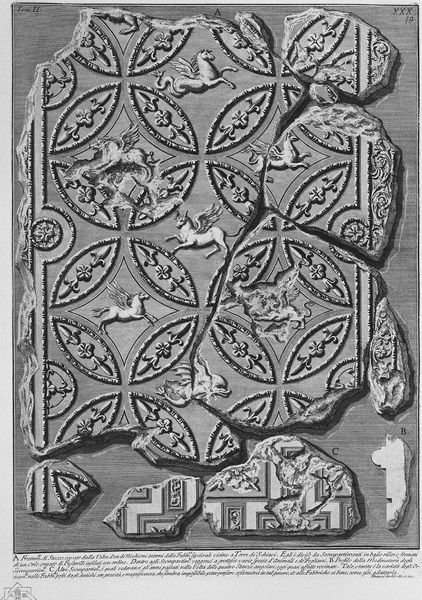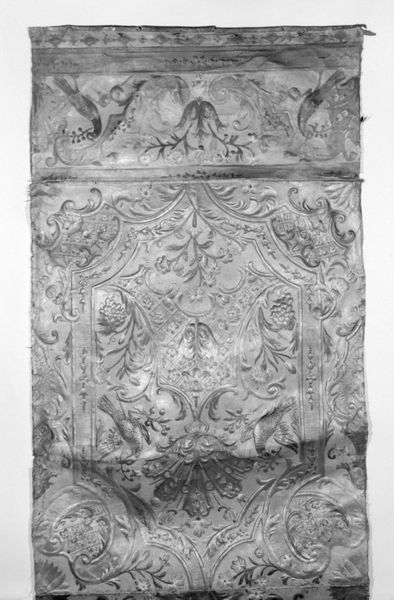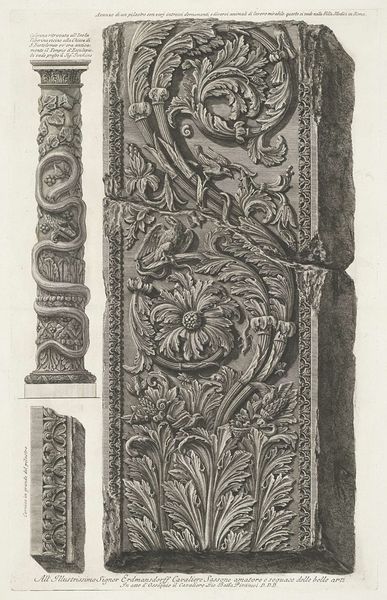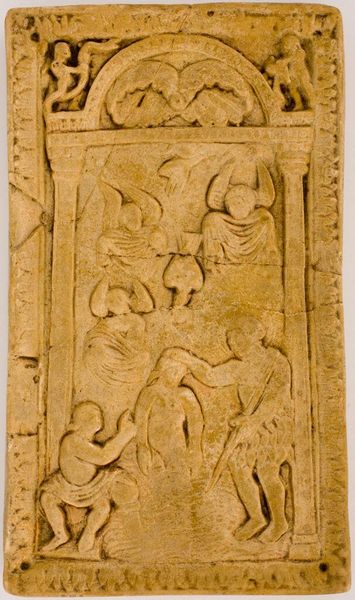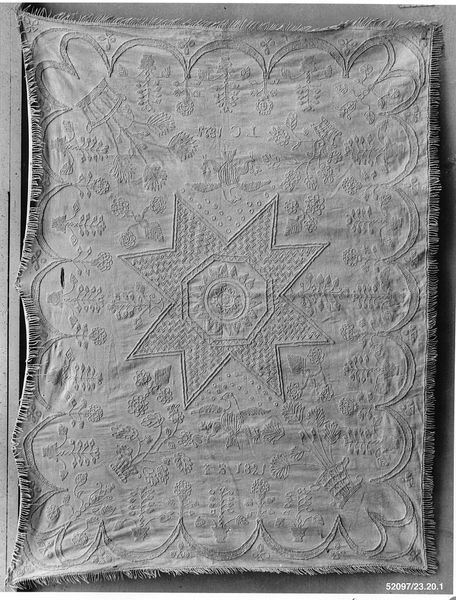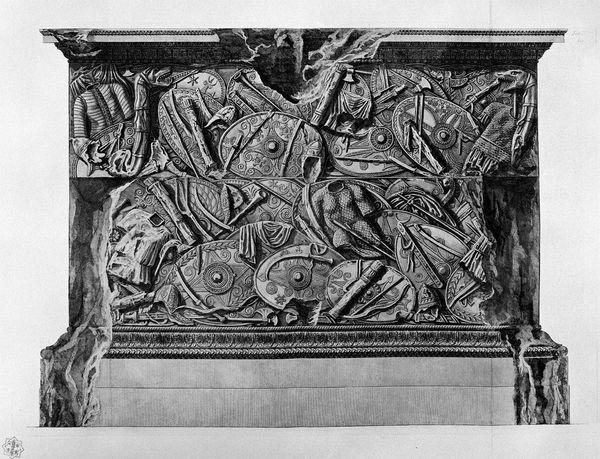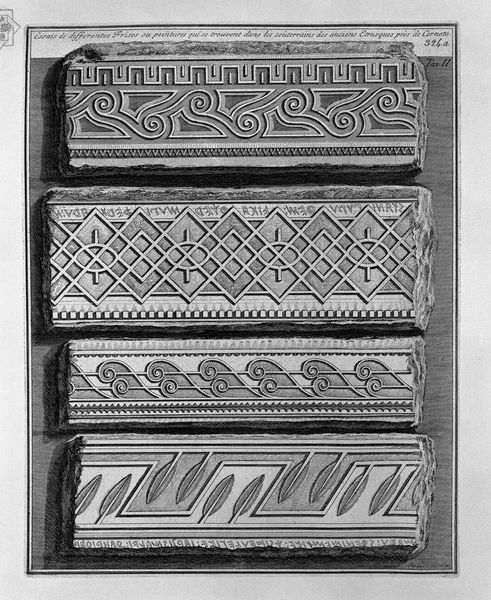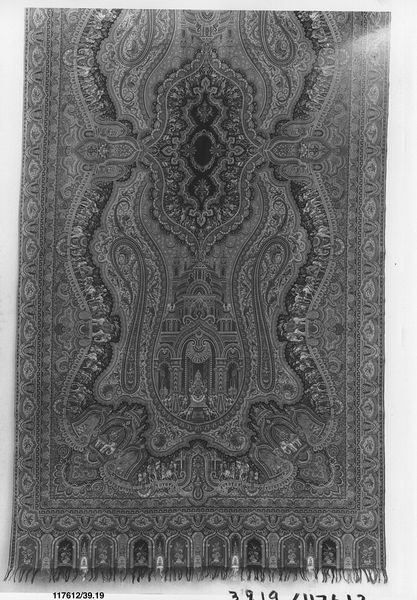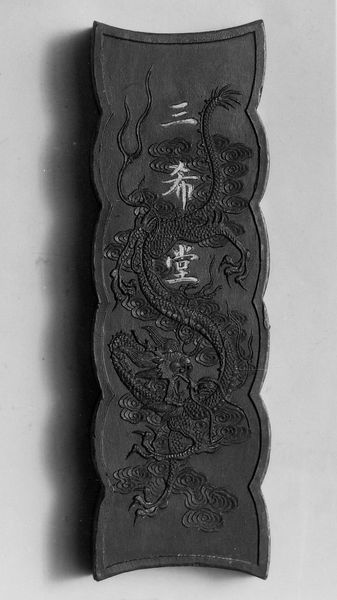
Part of a wall of marble found in Hadrian`s Villa in 1779, decorated like a pillar, with arabesques, figures of Bacchae and animals, and a terracotta frieze
0:00
0:00
drawing, carving, relief, sculpture, marble, engraving
#
drawing
#
neoclacissism
#
carving
#
sculpture
#
relief
#
landscape
#
figuration
#
charcoal art
#
sculpture
#
carved
#
marble
#
engraving
#
pencil art
Copyright: Public domain
This print by Giovanni Battista Piranesi depicts a marble wall fragment unearthed at Hadrian's Villa in 1779. The composition is dominated by an elaborate central panel filled with arabesques, Bacchae figures, and animals, set against a rough, textured stone. The stark contrast between the intricately carved relief and the coarse background immediately captures our attention. Piranesi masterfully uses line and form to create a dynamic visual experience. The swirling patterns and figures within the central panel evoke a sense of frenzied movement, destabilizing any fixed interpretation. This dense ornamentation reflects a broader artistic interest in challenging classical ideals of simplicity and order. It engages with themes of excess and the blurring of boundaries between nature and artifice. Note how Piranesi disrupts the conventional expectations of architectural representation. Instead of presenting a pristine, idealized view, he emphasizes the fragment's materiality and the chaotic energy of its decoration. This approach invites us to reconsider the relationship between classical forms and the complexities of cultural memory.
Comments
No comments
Be the first to comment and join the conversation on the ultimate creative platform.
